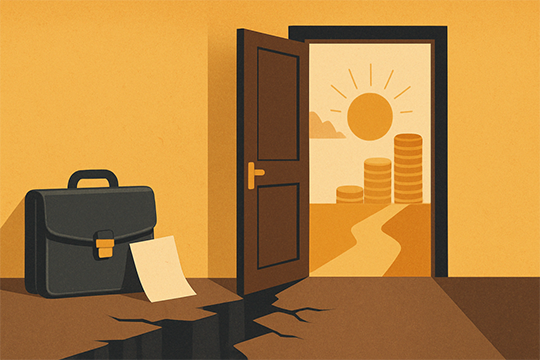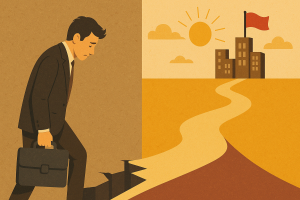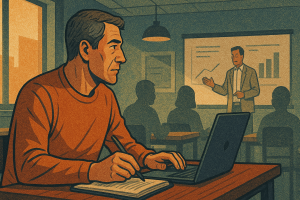When I lost my job at the age of 35, it felt like the end of the world. The thought of facing a midlife crisis loomed large, as my self-worth seemed intricately tied to my professional identity. However, over time, I learned to view this sudden loss as an opportunity rather than a setback. This pivotal mindset shift was crucial. Instead of succumbing to despair, I chose to reflect on my passions and interests.
Consider the story of Howard Schultz, former CEO of Starbucks. He grew up in a poor neighborhood and faced numerous hurdles before taking the coffee company to global heights. Schultz viewed every obstacle as a chance to innovate, ultimately transforming Starbucks from a small bean seller to a cultural phenomenon. Similarly, I resolved to harness my challenges as motivation, setting the stage for future successes.
Building a Resilient Mindset
Resilience became my guiding principle during my entrepreneurial journey. The initial months after losing my job were riddled with fear and uncertainty. I realized that overcoming adversity often begins with cultivating a resilient mindset. Each setback during the early days of my startup was, in essence, part of the learning curve.
Take the example of Elon Musk, founder of SpaceX and Tesla, who faced multiple near-bankruptcies before achieving remarkable success. His relentless pursuit of innovation and ability to bounce back from failure is inspiring. By focusing on learning and adapting, I too was able to embrace setbacks as vital experiences that shaped my entrepreneurial approach.
Networking and Leveraging Relationships
During the phase of rebuilding my career, I recognized the importance of networking. Connecting with former colleagues, industry experts, and even mentors provided me with invaluable insights. Relationships became a lifeline, offering guidance and support in pursuing entrepreneurial endeavors.
For instance, Mark Zuckerberg leveraged his college peer network to create Facebook. He often emphasizes the role of relationships in his and the company’s success. I followed suit, reaching out to both old connections and new acquaintances, engaging in meaningful conversations that ultimately led to collaborative opportunities for my business.
Perseverance and Continuous Learning
Success rarely comes overnight, and perseverance is crucial. My journey involved countless hours of hard work, overcoming obstacles, revising my business plan, and honing my skills. Continuous learning became a core principle of my entrepreneurial journey, as I sought knowledge from various sources, whether online courses or reading industry-related books.
Richard Branson, the founder of the Virgin Group, has always expressed the value of perseverance in his entrepreneurial ventures, emphasizing that failures are integral to growth. Drawing inspiration from his story, I persisted through challenges, adapting and evolving my strategy until I found success.
Achieving Financial Freedom and Giving Back
Today, at 40, I stand as a testament to what can be achieved when one embraces resilience, networking, and continuous learning. Achieving financial freedom is not just about personal success; it also carries the responsibility of giving back. I now mentor other individuals facing midlife challenges, helping them navigate their paths to success.
As I frequently remind those I mentor, the stories of entrepreneurship often include fallibility and struggle. I share my experiences openly, hoping to inspire others, just as successful entrepreneurs have inspired me. By fostering a spirit of community and sharing knowledge, we can collectively uplift one another.
While midlife unemployment can feel incredibly daunting, it can ultimately lead to incredible opportunities. By shifting our mindset to embrace challenges, building resilience, leveraging relationships, persevering, and sharing our successes, we can transform our lives and the lives of those around us.


